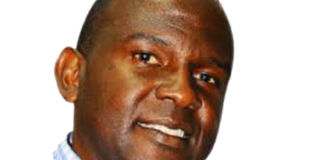African armies cannot stop Nato military intervention

What you need to know:
No match for NATO. The truth of the matter is that even if Africa put all its resources together...we would be no match for Nato.
While speaking to BBC radio in London where he attended the first United Kingdom-Africa Summit last week, President Museveni said Africa should have taken steps to stop a North Atlantic Treaty Organisation (Nato) military intervention in Libya in 2011. “Africa could have intervened and taught those people a lesson… Libya was an African country being attacked by foreign powers; we should have intervened.”
The truth of the matter is that even if Africa put all its resources together and we all became trained armed soldiers, we would be no match for Nato. Libya alone had one of the best equipped and modern armies on the continent. But was no match for Nato’s superior air power. The best Libya’s ‘feared’ and powerful generals could do was to flee for their own lives. The most recent event that helps us understand the vulnerability and haplessness bedevilling the armies of developing countries was the assassination of Iran’s feared top and powerful general, Qassem Soleimani near the Baghdad International Airport on January 3.
Drones undetectable by radar systems picked out their target and struck. There were still some missiles reserved for those who fled the scene on foot. All were annihilated. The wars of the 21st Century are about superior technology, a field in which African countries are still in the 18th Century where muscle power (Kanyama) was what subdued an enemy.
The drone, the intercontinental ballistic missiles, smart bombs, etc, is the way to go. The issues of having boots on the ground is now antiquated. It has serious political implications at home, especially when the body bags of young citizens begin to arrive. No one wants to have their child (and Europeans are famous for having very few children) dying in a war in lands far away for things that ‘don’t concern them.’
Vietnam taught the US, its allies and the rest of the world that moving men to lands yonder to fight wars as your main asset in executing a war is extremely risky. The terrain, difficulty in developing and maintaining supply lines, the language barrier and the challenge of gathering intelligence, etc, puts foreign armies at a huge disadvantage. So now you take over the skies and rain down precession bombs and missiles from miles away. Superiority in the use of satellite is key. African countries are out of depth in this field.
Even before we get there, we still have challenges of building national armies, paying soldiers decent wages, feeding, clothing, housing, treating and training them. A lot of this is provided by donors who fund, train and equip African armies with cheap and relatively simple ammunition. This sort of ammunition and skills are suitable for skirmishes, tribal, guerrilla warfare and peacekeeping. They would be no match for developed armies that can launch missiles from thousands of miles away and from stealth jets which render detection by radars, useless. So why do African governments still invest huge percentages of their budgets on the military.
First these armies are mainly tribal in composition. They are the arm of the State that helps keep ruling ethnic groups in power. They act as anti-coup armies for the safety and perpetuation of the ruling tribal elite. Secondly, the army being such a secretive organisation in terms of its operation, is an avenue for self-aggrandisement because much of its expenditures are classified. We never get to know how much is spent on what type of military hardware so that we know who got what kick-back because it ‘would compromise national security.’ Thirdly, African armies are now the bargaining chip and safety net of African dictators who are seeking protection and favours from the powerful West. They do the dirty work of ‘peacekeeping’ by sacrificing the blood of African soldiers in lands far away.
This saves say the US government from returning body bags. The African soldier dies on their behalf. The benefactors of these ‘houseboy’ armies then dubiously become allies in things like the war on terror. It gives them licence to rig elections and cling onto power for as long as they remain vital military ‘service providers.’
The protection of borders remains the major role of the modern African army. But in this too, you do not expect a fully-fledged war anytime soon in case of a disagreement and failure in diplomacy. Many African countries now belong to donors and international capital that will not allow war between states. Such wars would interfere with the quest of international capital to exploit (steal) resources from the continent. So in case of a misunderstanding, African countries can only stop at theatrics and closing of borders not war. That is why in some countries, you find poorly trained, idle arrogant potbellied generals who have no record of having fought in any significant wars, with a lot of time on their hands.
Their main pre-occupation is threatening civilians from whom they grab land and manipulate with ease claiming they ‘fought’ and are therefore entitled to accumulate wealth. At other times, they are meddling in the economy monitoring and distributing resources selectively to subdue the citizen and help perpetuate the governments they serve.
In many cases, they are granted leg room to primitively accumulate wealth leaving them beholden to the status quo because their interests are now one. They will go out of their way to provide political support to the ruling tribal elite to ensure they stay in power. This they will do by directly interfering in the stealing of elections and visiting violence on their political rivals.
Mr Sengoba is a commentator on political and social issues. [email protected].
Twitter:@nsengoba


